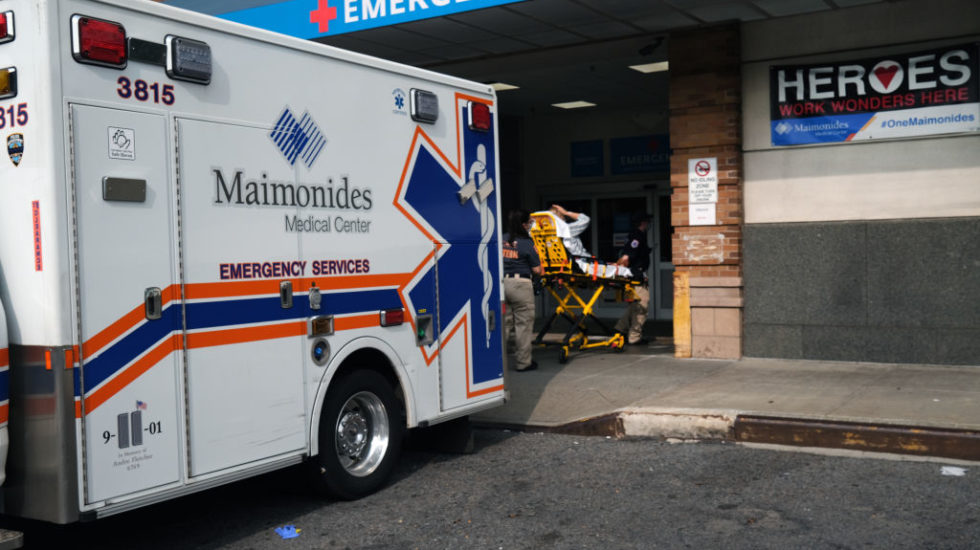The third wave of the Covid-19 coronavirus pandemic is upon us, and across much of the U.S., hospitals and their workers are overwhelmed.
“There are more than 41,000 Covid-19 patients hospitalized in the United States, a 40 percent rise in the past month,” reports the New York Times.
And the burden is falling most heavily not in metropolitan areas, as it did earlier in the pandemic, but in sparsely populated states and regions where, the Times says, “the medical infrastructure is less robust.”
“Our health care system is at capacity, our health care providers are overwhelmed and exhausted, our public health system is stressed,” Dr. Angela Dunn, Utah state epidemiologist, said last week. “I don’t know what to do anymore.”
Just in the past few days and weeks:
- Texas Gov. Greg Abbott said an emergency care site was being set up in hard-hit El Paso, on the U.S.-Mexico border. City public health officials imposed a 10 p.m. curfew and begged residents to stay home for two weeks to curb the rapid spread of Covid infections.
- Field hospitals are being built in Milwaukee, Salt Lake City and elsewhere to ease the pressure on regular hospitals.
- Hospital administrators warned Utah Gov. Gary Herbert they will soon have to “ration” access to intensive-care units; they sought approval for criteria to determine which parents should get priority, according to the Salt Lake Tribune.
- A regional medical center in Tennessee suspended all elective procedures that would require a patient to spend the night.
- Medical centers in Kansas City MO turned away ambulances earlier this month when they ran out of room for new patients.
- An Idaho hospital that was 99% full warned that it may have to ship Covid patients to Seattle and Portland OR.
- In Kentucky, the state shattered its record for the number of new cases per week, with 9,335.
“With Election Day just over a week away, average deaths per day across the country are up 10% over the past two weeks, from 721 to nearly 794 as of Sunday, according to data from Johns Hopkins University.
Confirmed infections per day are rising in 47 states, and deaths are up in 34, despite weekend assurances from President Trump that “we’re rounding the turn, we’re doing great.”.
Overall, nearly 8.7 million Americans have tested positive for the virus; more than 225,000 have died — and multiple experts have said the worst is yet to come.
One of them is Michael Osterholm, an infectious diseases expert at the University of Minnesota, who told the Associated Press that the Trump administration needed to implement a strong national response plan to prevent catastrophe.
“But our response has been … I don’t know what our response has been,” Osterholm said.
